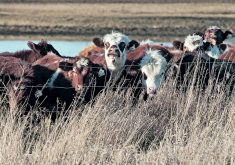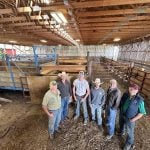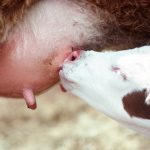Winnipeg | Reuters — Canadian cattle producers will urge Ottawa to retaliate against the U.S. if the incoming Trump administration imposes a meat labelling program it views as discriminatory, restarting a six-year trade battle, an industry group said on Wednesday.
U.S. news network CNN reported on Tuesday that a memo drafted by President-elect Donald Trump’s transition team, which it obtained, said the new administration would immediately initiate changes to the North American Free Trade Agreement (NAFTA) with Canada and Mexico. Those changes could include measures on country-of-origin labelling (COOL), CNN reported.
Read Also

Federal agriculture minister to meet with Chinese officials, business leaders
Federal Agriculture Minister Heath MacDonald is in China this week in hopes of strengthening agricultural ties between the countries.
The U.S. COOL program required as of 2009 that retail outlets label food according to its origin. Canada and Mexico argued that COOL, repealed in December, led to fewer of their cattle and pigs being slaughtered in the U.S.
“We’re watching… and if we think it discriminates against our cattle, our recommendation is going to be that tariffs go into place immediately” on U.S. products, said John Masswohl, director of government and international relations for the Canadian Cattlemen’s Association, which represents Canada’s 68,500 beef farms and feedlots.
The World Trade Organization last year authorized Canada to retaliate against the U.S. over COOL, setting the annual level at $1.055 billion.
Canada’s previous Conservative government listed in 2013 three dozen U.S. product categories that could be subject to a 100 per cent surtax, including pork, beef, cherries, appliance parts, chocolate, wine and office furniture, but none were imposed.
Alex Lawrence, spokesman for Canada’s Trade Minister Chrystia Freeland, would not say if Canada is inclined to retaliate, adding Ottawa looks forward “to working very closely with the new administration and with the United States Congress, including on trade and investment.”
Until it’s clear how Trump might approach COOL, no action is necessary, Masswohl said.
“I don’t go around chasing ghosts,” Masswohl said. “If anything starts to become real, we’ll know well in advance.”
The Canadian Pork Council, which represents the country’s hog farmers, is taking a wait-and-see approach until it knows what changes, if any, the next U.S. government will make, said executive director John Ross.
— Rod Nickel is a Reuters correspondent covering the agriculture and mining sectors from Winnipeg.












